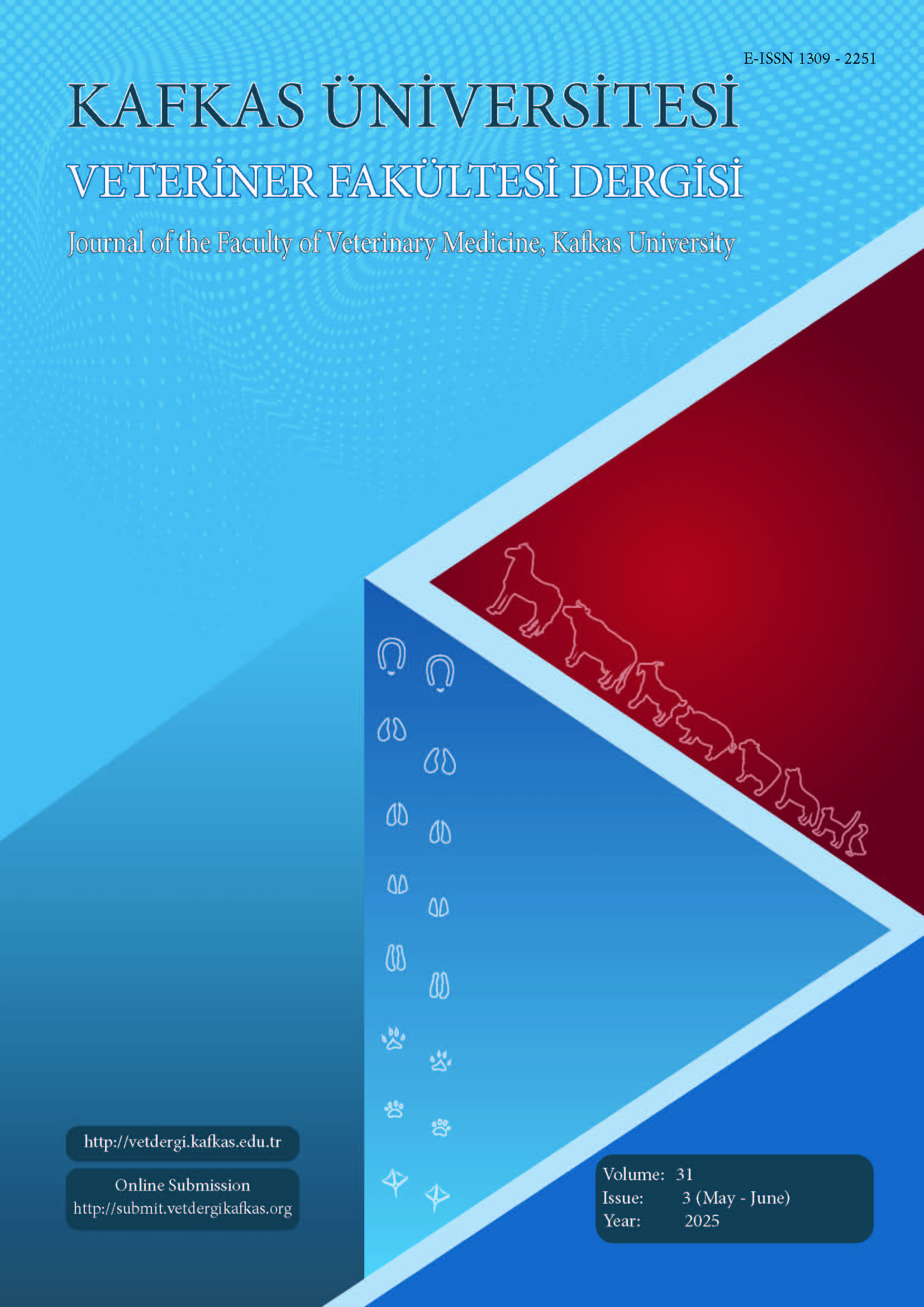
This journal is licensed under a Creative Commons Attribution-NonCommercial 4.0 International License
Kafkas Üniversitesi Veteriner Fakültesi Dergisi
2025 , Vol 31 , Issue 3
Effects of In-Ovo Chrysin Injection to Quail Eggs on Hatchability, Production Parameters, and Immunity
1Ataturk University, Faculty of Veterinary Medicine, Department of Animal Science, TR-25240 Erzurum - TÜRKİYE2Ataturk University, Faculty of Veterinary Medicine, Department of Biochemistry, TR-25240 Erzurum - TÜRKİYE DOI : 10.9775/kvfd.2025.33658 This study investigated the effects of in ovo Chrysin injection on hatchability, embryonic mortality, body weight, feed conversion ratio (FCR), and immune responses in quails. A total of 720 fertilized eggs were randomly assigned to four groups: Control (0.1 mL distilled water) and Chrysin-treated groups (0.1 mL containing 0.25 mg, 0.50 mg, or 0.75 mg Chrysin per egg). Hatchability and hatching efficiency were unaffected by Chrysin treatment, although late embryonic mortality was significantly higher in the 0.75 mg group. Post-hatch evaluations showed significantly greater body weights on days 14 and 42 in the 0.25 mg and 0.50 mg groups compared to the control. These groups also exhibited improved FCR values, while feed intake remained unchanged across groups. Immunological analysis revealed a significant increase in IgA levels in the 0.75 mg group, with no significant effects on IgM or IgG levels. Overall, in ovo Chrysin supplementation at 0.25 mg and 0.50 mg enhanced growth performance and feed efficiency without adversely affecting hatchability, while the 0.75 mg increased embryonic mortality, indicating a need for dose optimization. These findings suggest that Chrysin holds potential as a biotechnological tool in poultry production, though further studies are required to refine dosing strategies and investigate its long-term impacts on performance and immunity. Keywords : Chrysin, Feed conversion ratio, Hatchability, Immunity, In-ovo











